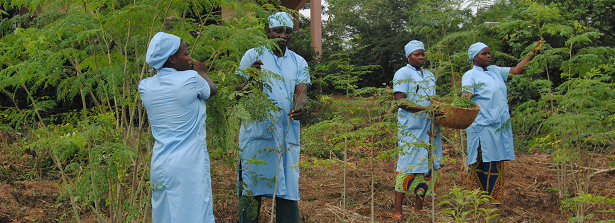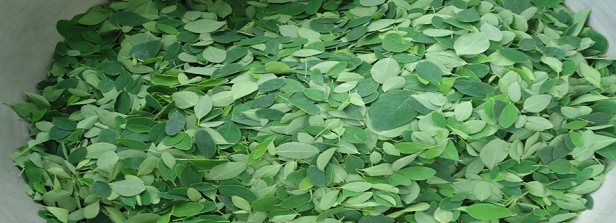Valorisation of Moringa leaves to alleviate malnutrition in vulnerable groups in Benin (FortiMoringa)

Duration: 08 January 2017 to 07 January 2020
Project information
Aim: This multidisciplinary research “Improving and promoting the use of Moringa oleifera leaves for a better maternal and early childhood nutrition in Benin (FortiMoringa)” will seek scientific evidence to enable scaling up the activities of THP-B and its partners in promoting Moringa Oleifera as a valuable local food resource and income source, to improve maternal and early child nutrition and health. By leveraging its shared networks, the consortium ensures uptake of the outcomes by other stakeholders, the public and policy makers.
Objectives: The main objective of this project is to valorize the moringa leaves for a better nutrition of vulnerable groups in Benin. The specific objectives of the project are to:
- Improve the production of moringa leaves;
- Improve the MLP processing value chain;
- Formulate novel MLP-based complementary food for young children;
- Conduct efficacy study of MLP-based food;
- Certify the quality of the MLP-based products;
- Promote the use of the MLP-based products.
Method: This multi-disciplinary project will be implemented within six work packages (WP) corresponding to research questions, as described below.
- WP1: How can moringa leaves and seeds productivity be increased?
- WP2: What are the main entry points for improving Moringa leaves value chain?
- WP3: What is the most appropriate and acceptable MLP-based complementary food formula by the children?
- WP4: What is the efficacy of the MLP on growth, and micronutrient status of the children and their mother?
- WP5: Does the safety quality of the standardized MLP meet the requirements for national certification?
- WP6: Which strategies are suitable for scaling up Moringa-based food consumption?
Country: Benin.
Dutch policy goal: Eradicating existing hunger and malnutrition (‘people’).
Progress reports
Year 1: This project started on January 15, 2017 and aims to valorize moringa leaves for a better nutrition of vulnerable groups in Benin. Ethnobotanical surveys were carried out with 216 farmers to investigate the production system of Moringa (WP1). In WP2, we conducted a survey with 15 MLP (moringa leaves powder) processors to improve processing conditions. Furthermore, we estimated the effects of the drying parameters on MLP quality in view to optimize the process. Also, 36 samples of commercial MLP were collected and characterized for nutrient contents and sanitary profile. Currently, 33 MLP processors and consumers are under survey to understand packaging practices. In WP3, 5 formulations were developed with MLP incorporation levels varying from 10 to 30%. Next, the recipes were elaborated and the infant flours produced using cereal malt and applying fermentation. The products were assessed for proximate composition and microbial load. In WP6 a baseline study has been conducted to elaborate a bcc model in nutrition for scaling up moringa consumption and uses at household level. Management and coordination focussed on the launching workshop in Cotonou, 2 follow up meetings and 2 steering committee meetings; communication between partners through email exchanges and visits. 5 master students were trained.

